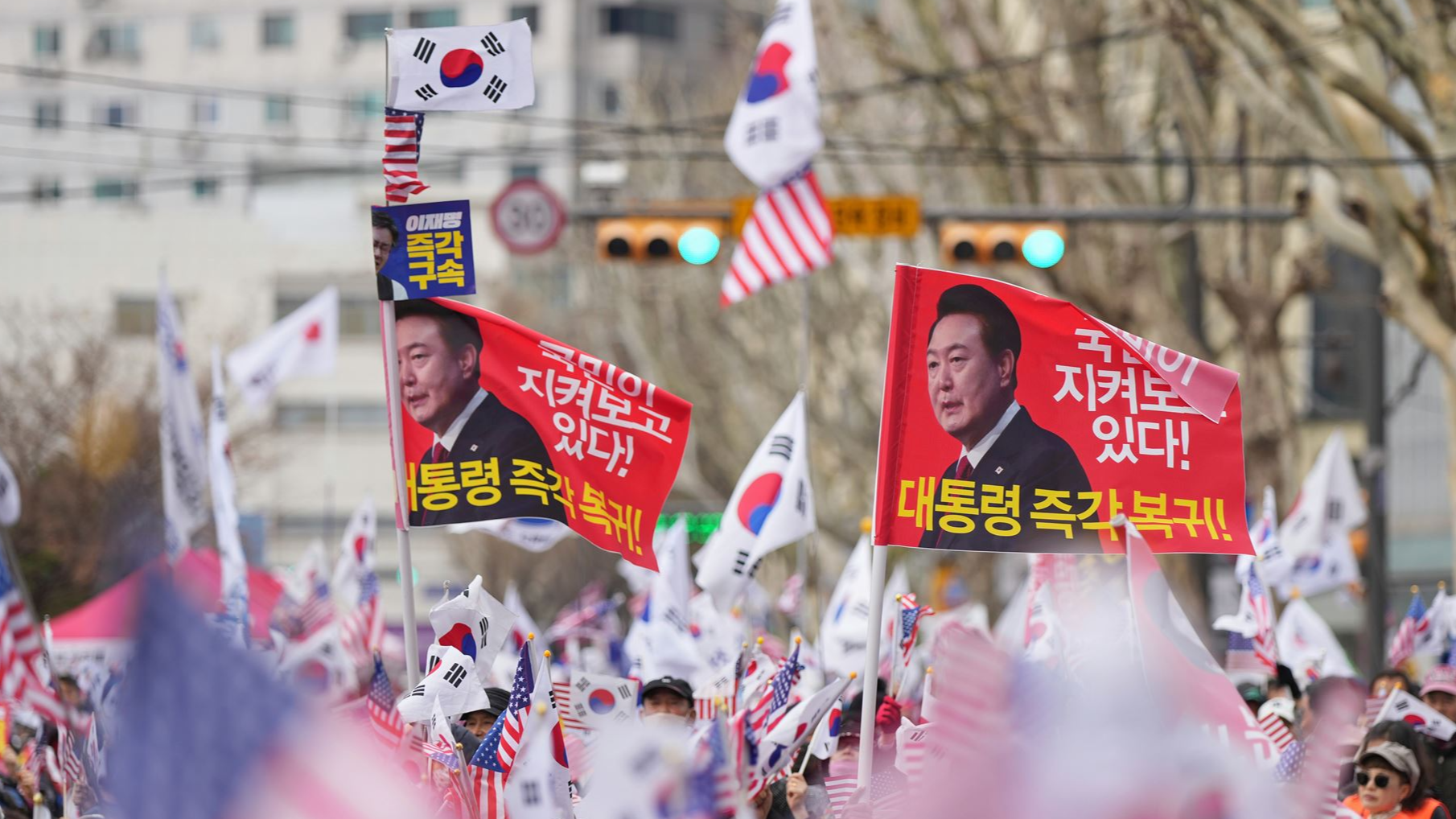
SEOUL - South Korea is bracing for a potentially violent public reaction to a Constitutional Court ruling on Friday on whether to remove impeached President Yoon Suk-yeol from office or reinstate him amid the country's worst political crisis in decades.
Yoon has decided not to attend the constitutional court's ruling on his impeachment after considering factors such as maintaining order and security concerns, Yoon's legal representatives said Thursday, adding that the representative team will be present.
If impeached, Yoon will be immediately removed, and a new presidential election must be held within 60 days. If the impeachment is dismissed, he will resume his duties.
ALSO READ: S. Korea court to decide whether to impeach Yoon on April 4
To ensure public order, a 150-meter (164-yard) stretch of a four-lane street in front of the court will be closed to cars and pedestrians, with several layers of police buses parked bumper to bumper along both sides of the road and their wheels chained.
A 1.85 km (1.15 mile) radius around the court has been declared a no-fly zone for Friday with equipment deployed to disable drones. The eight justices of the court already have security protection and the acting president has directed the police to step up protection for them.
14,000 police officers
The police have also warned of zero tolerance for any illegal activities related to the court decision, following a mob rampage at another court after it approved a warrant for Yoon's detention on January 26.
Authorities were also caught off guard by the violent protest following the ruling ousting former President Park Geun-hye in 2017, when four Park supporters were killed and scores injured, including police.
More than 14,000 police officers will be mobilized throughout Seoul. They have been authorized to use pepper spray and batons if needed. South Korean police have unofficially stopped using tear gas and water cannon for crowd control after deaths in past protests.

It took the court more than 100 days to make a decision after the impeachment motion was passed in the National Assembly on Dec 14, 2024.
The unusually long deliberation period has fueled speculations about divisions in the constitutional court.
Kyung Hee University Law School Professor Jung Taeho told local newspaper Chosun Ilbo that he expected a unanimous ruling to uphold the impeachment to prevent future presidents from abusing emergency powers during political crises.
READ MORE: S. Korea's opp: Delay of Yoon impeachment ruling irresponsible
However, some analysts believed the impeachment could be dismissed if fewer than six judges vote in favor, allowing Yoon to return to the presidential office.
Local daily Hankyoreh cited a former senior judge who speculated that the delay in the constitutional court might indicate insufficient support for impeachment.
The ruling and opposition parties remain sharply divided, while a March 28 poll showed 60 percent of South Koreans support impeachment, with 34 percent opposed.


